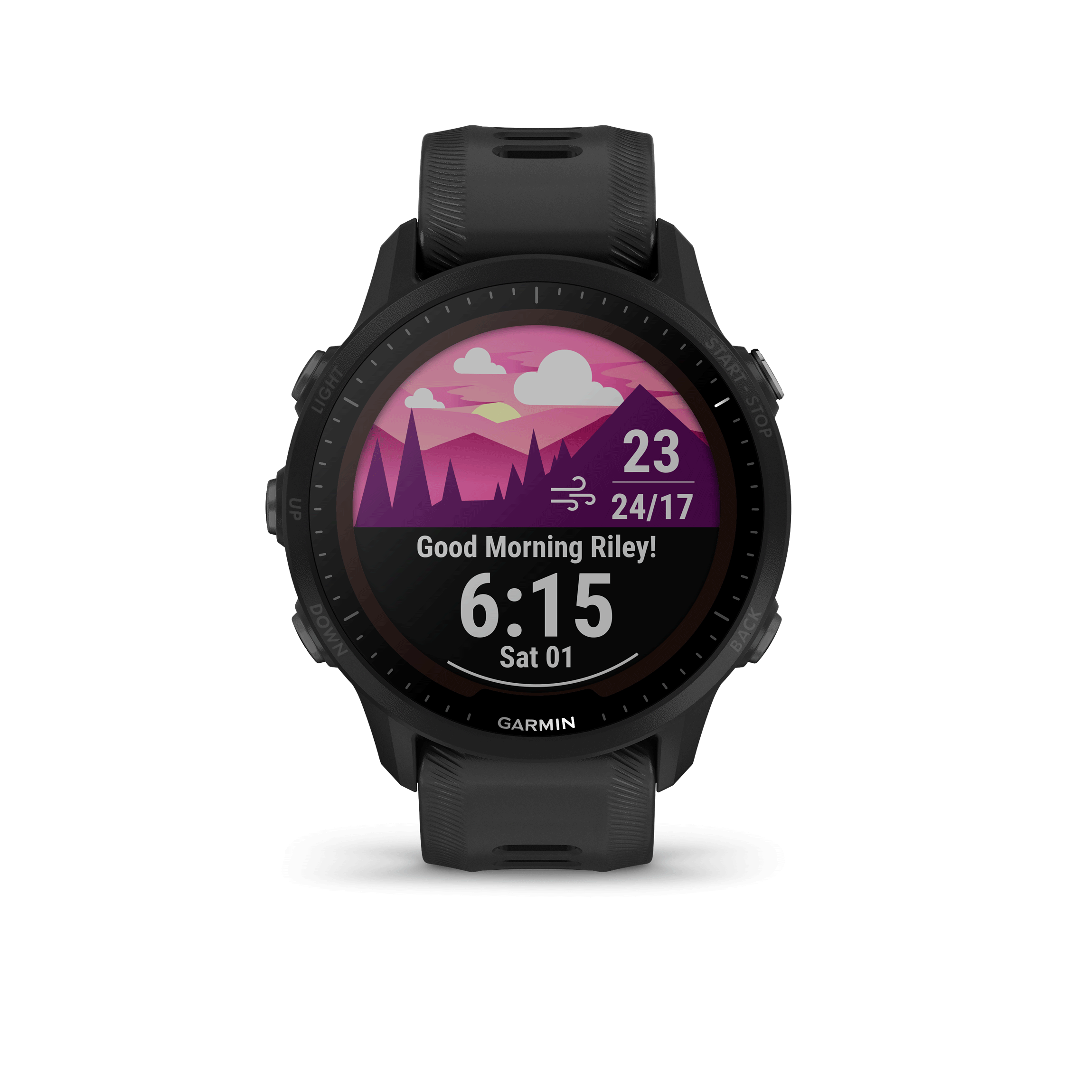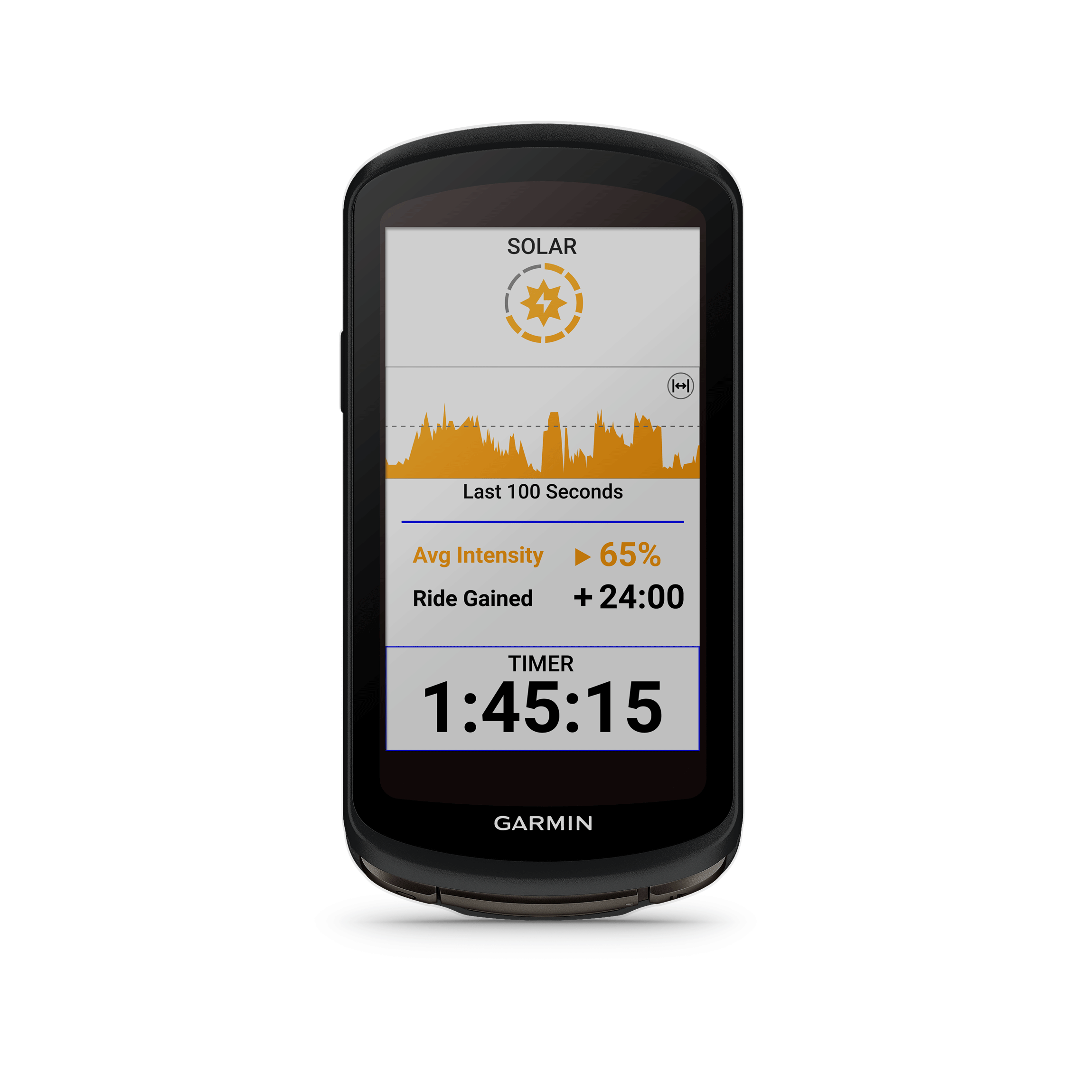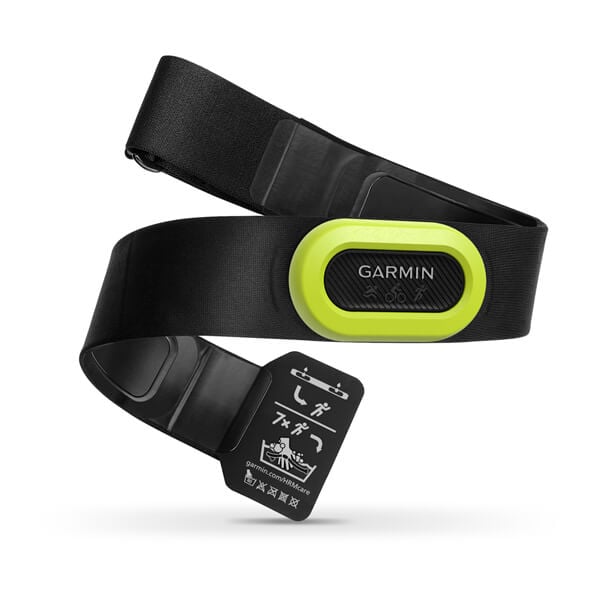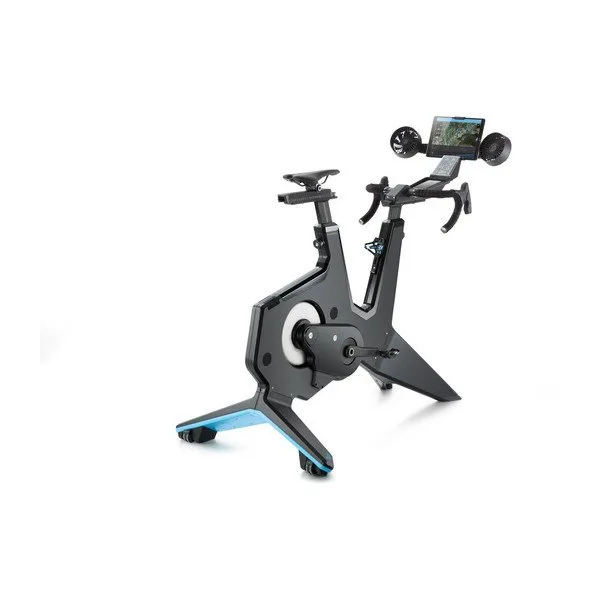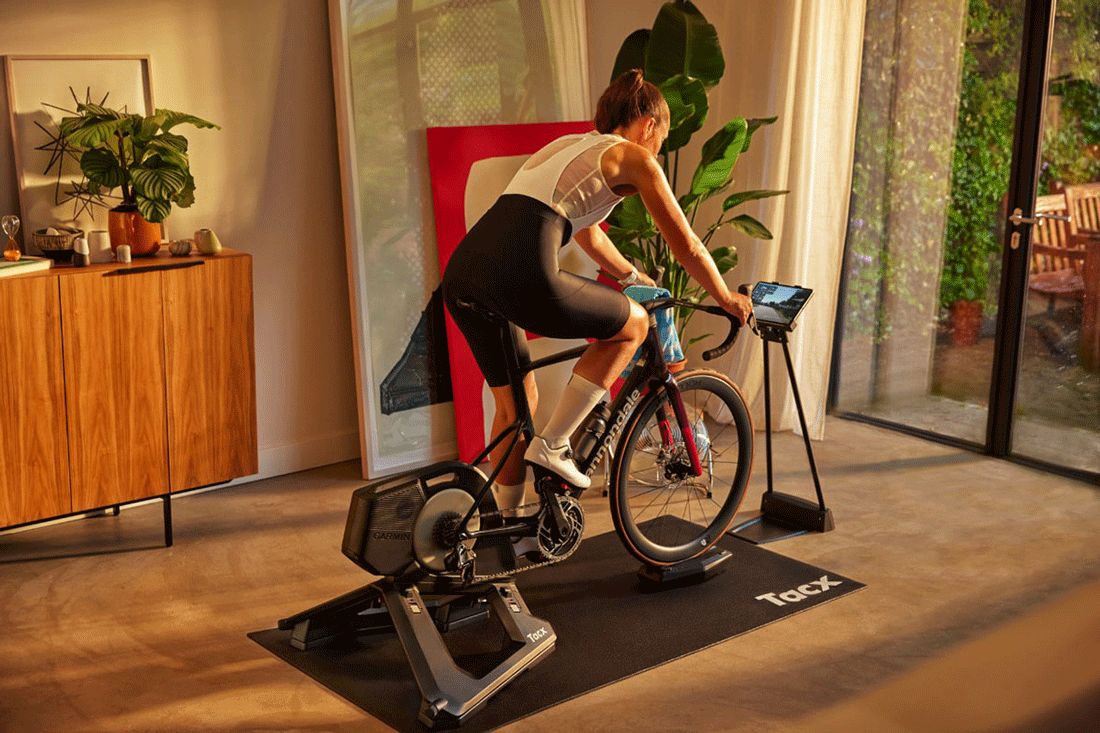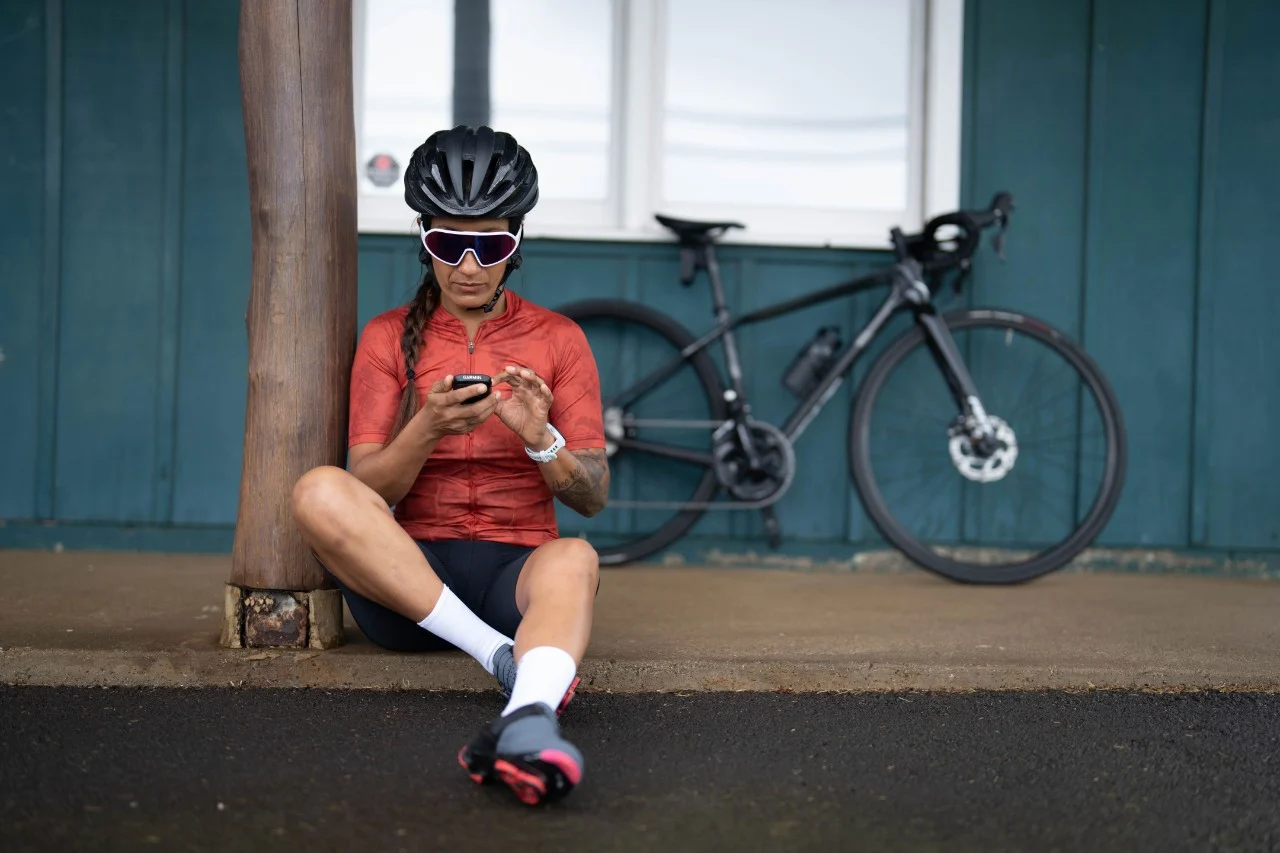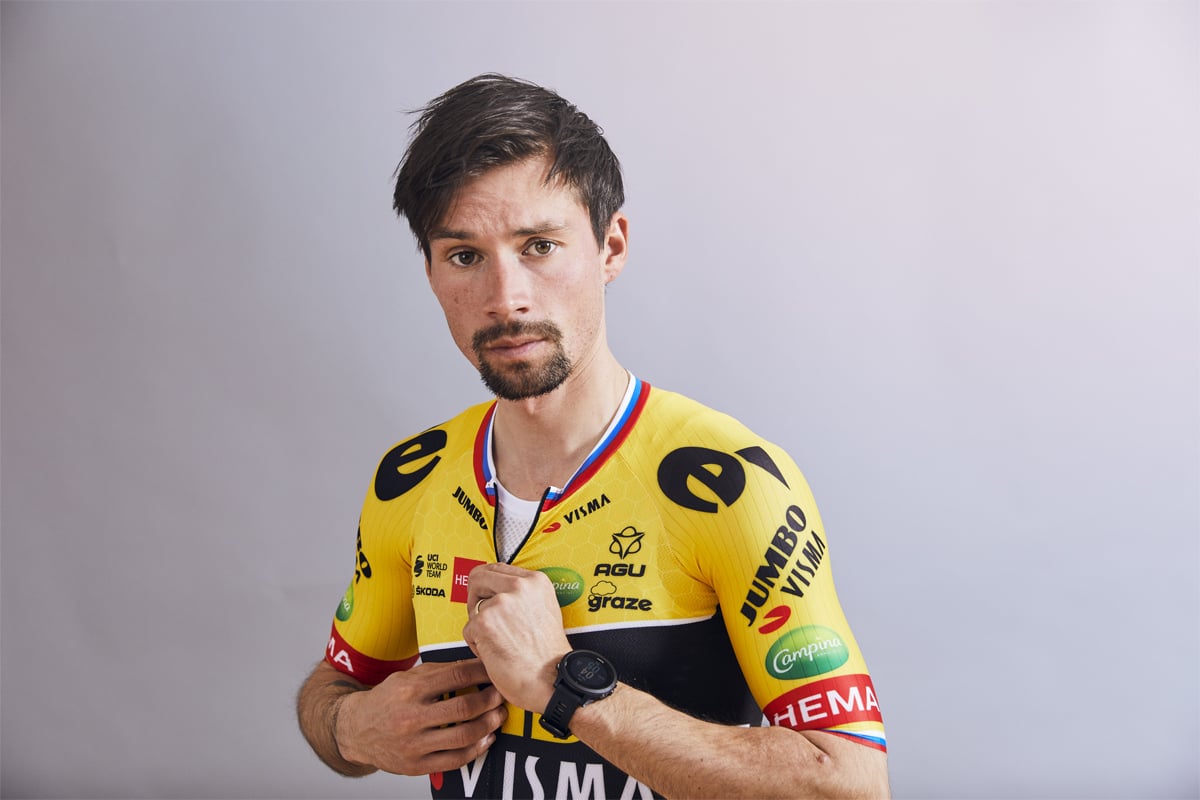
Why you need a smartwatch as a cyclist
Most cyclists ride around with a head unit to measure their speed and distance. Many of them will also measure their heart rate and some of them even gather their power data. But what happens in between your rides? Do you recover enough, what’s the impact of a stressful day at work, and how do you know if you are ready for your next training on the bike? By using a Garmin smartwatch, it helps you to understand that. Read on to find out how you can up your training game.
Connectivity is key
These days you can connect your bike to many devices, like a Garmin Edge head unit, a heart rate strap and Rally power meters, for example. These products collect all the data you need to better understand and improve your performance on the bike. With Firstbeat Analytics, the built-in Garmin data analytics platform, you also connect the bike to yourself. It gives you insights to your training load, training status, recovery time, fitness level and so on. This is great, but if you only collect the data from the couple of hours you’re on the bike, you miss a big part of your fitness puzzle. By not catching the total load of activities, like a walk, hike, run or playing tennis or basketball, you are misinterpreting the amount of strain your body is experiencing. When you record everything, you’ve got the full picture of what’s happening to your body. By adding a Garmin smartwatch with round-the-clock heart rate tracking to your devices, you are able to connect your bike to the rest of your life.
Simply stated, this will give you the great chance to make a positive influence on your training. By measuring things off the bike like your other activities, sleep, heart rate, overnight HRV and stress, you get the 24/7 athlete concept. So if you’re a cyclist and you are serious, then you need this holistic perspective. But which Garmin wearable is the right pick to complement your Garmin cycling ecosystem?
Say hello to the Forerunner 955
The brand-new Forerunner 955 is especially created for runners, cyclists and swimmers and designed to be worn all day and night. It records your heart rate continually, gives you a detailed breakdown of your sleep quality, tracks your stress levels, breathing, and includes many other advanced health and wellness features you need and expect from a modern smartwatch. Trust us, it’s a long list, but just let’s sum up a few of these. Besides standard metrics like calories burned, step and stairs counting, it has the Body Battery feature to keep track on your daily energy level, Pulse Ox to measure the oxygen level in your blood which is important to understand wellness, fatigue and acclimatisation, and it has a huge list of activities to select from in order to track almost any sport.
It easily pairs to your smartphone to get smart notifications and to sync your data with Garmin Connect. It also seamlessly connects to external sensors you use during a run or ride. Did you know you can even control a Tacx Smart trainer for an indoor training session with this watch?
In addition to this, it has a great navigation feature supported with multi-band GPS for the most challenging environments, and it comes with safety and tracking features. The Forerunner 955 can be controlled both with the touchscreen interface and with the buttons on the side of the watch. Why? So you still have full functionality with sweaty hands or during a bumpy ride. Oh, and it will last — a week without charging? No problem at all. The solar edition even gives up to 20 days of battery life in smartwatch mode and up to 49 hours in GPS mode.
And are you up for a triathlon? The Forerunner 955 doesn’t only record your swim, ride and run; it also has the functionality for mirroring, so that your bike computer can display data collected during your swim. And with the new Race widget you can view race prep information, including a race day-specific performance prediction, race day weather and a countdown clock. Once a race is scheduled, daily suggested workouts will adapt to get you ready and help you be at your best on the big day.
Not convinced yet? Check out the unique features below.
New must-have features
Training readiness
The Forerunner 955 comes with a very cool new feature: the groundbreaking training readiness score. It shows how your body will respond to a workout that day. In this way you can determine whether it’s a good day to go really for it or if it’s better to slow down a bit.
Awesome, but why can’t my Garmin Edge determine this? Simply put: a head unit is missing two big components to calculate this: 24/7 recovery (even the most dedicated riders don’t take their bike computers to bed) and your sleep quality. Plus, the Forerunner 955 also weighs in stress from the past few days, HRV status, and the previous two nights of sleep. Again, you only get this from a wearable. The training readiness is further impacted by your training load. This will not only come from your bike, but also from other activities that will be recorded with heart rate if you are a multisport athlete.
HRV
The new1 HRV Status feature is a hot topic, but what is HRV (heart rate variability) actually? Let’s put it this way: your heart is not beating on a constant pace like a pop song; the timing between every beat is slightly different than the one before. The variation in length responds to your breathing for example, but can also be related to stress, exercise, sickness, alcohol, etc. So when your HRV is off your personal HRV baseline, it can mean that your body is working overtime to restore homeostasis.
To reduce external influences, the HRV on the Forerunner 955 is being measured throughout the night while you are asleep. This offers a significant advantage in terms of being able to provide reliable insight compared to other brands. In this way you gain a deeper understanding of your overall health, recovery, and training performance. And when we talk about the training readiness feature we mentioned above, we don’t just talk about the current HRV, but we compare your HRV of the past 7 days to your personal baseline. Then we add in the sleep data and workouts of the past week, and this all together builds your training readiness score.
Based on HRV status, your recent exercise history and performance, you get enhanced insights into your overall effort with the Training Status feature in order to know whether you’re training productively, peaking, or strained.
1Garmin has already been using HRV in the background for years to measure stress and gather data for the Body Battery, but it’s the first time we’re showing it.
Make life easier during your activities
At Garmin we understand you want to focus on your training — our job is to make it as convenient as possible. Want to listen to a playlist during a non-cycling activity but don’t want to carry your phone with you? We’ve got you covered. The Forerunner 955 offers offline music storage up to 2,000 songs from select streaming services like Spotify and Amazon Music. Connect it to your wireless headphone and bounce on the beat. Another cool feature: Garmin Pay. This allows contactless payments right from your watch for an extra bar during your ride or that post-ride coffee without the need of your wallet or phone. Just bleep from your wrist and go.
So, why does a cyclist need a Garmin wearable? It’s simply a no-brainer.
Watch the below video from Garmin team Quick Step Alpha Vinyl talking about their Garmin products and the importance of data.
